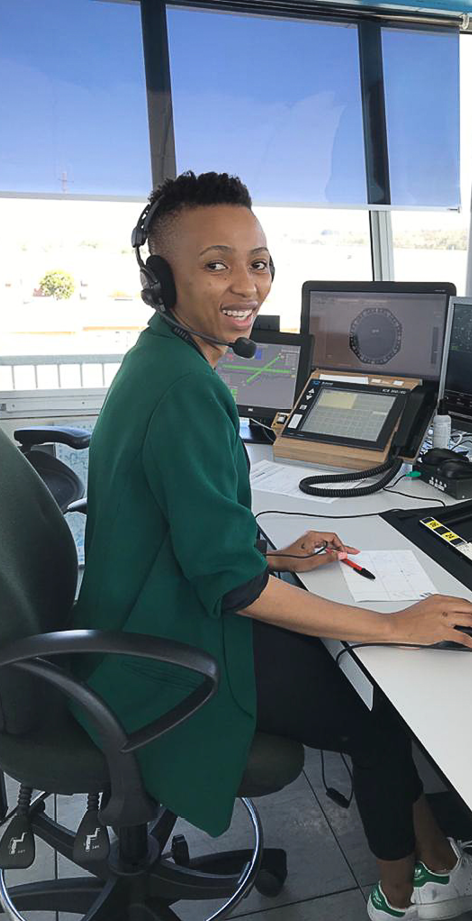Everyday Nwabisa Vitshima protects the lives of thousands of people. Vitshima is an air traffic controller at the East London Airport. She directs airplanes to land and take-off safely, and is part of the team that prevents accidents. 
Vitshima (32), grew up in the small Eastern Cape village of Sidwadweni. She excelled at school and went on to get a university degree in analytical chemistry. After receiving her degree, she was looking for a job, when her aunt saw an advertisement in an elevator from the Department of Transport.
The department was looking to recruit air traffic controllers from the Eastern Cape.
“At first, I was not too keen, because I did not know anything about airplanes and thought that air traffic controllers were actually the marshals on the ground,” says Vitshima.
However, her aunt convinced her to apply, and during the interview process, Vitshima became convinced that being an air traffic controller was what she wanted to do.
Vitshima began as an assistant air traffic controller with Air Traffic Navigation Services in 2013, and then became a full air traffic controller in 2015.
Everyday, she sits at her station in the air traffic control tower, communicating over radio with pilots and helping them to safely land and takeoff.
“We make sure that airplanes remain separated from each other. Some airplanes can have as many as 300 people on board, so we ensure that all of these people can get to their destinations safely,” says Vitshima.
She explains that the job requires concentration, good communication skills, memory, the ability to work under pressure and being able to work in a team.
“There is no room for error, because one small mistake can cost peoples’ lives. Everything has to be accurate and well-calculated. You are also dealing with a lot of different personalities and pilots, so you have to be able to communicate effectively with them.”
Vitshima says that young people who want to become air traffic controllers should focus on studying Mathematics and English at school.
“You need to be able to communicate well in English, and Mathematics helps you with problem-solving skills.”
Air Traffic Navigation Services offers a bursary programme for young people who want to work in the industry. For more information, go to the ATNS website at atns.co.za.



 Facebook
Facebook Twitter
Twitter WhatsApp
WhatsApp